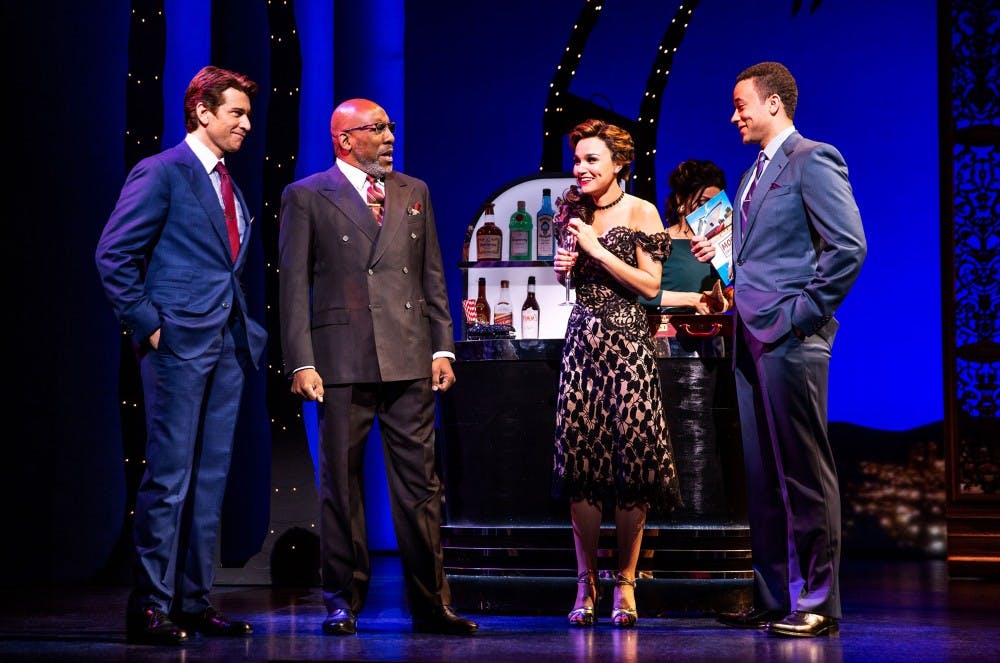The current Broadway season leaves much to be desired in terms of originality. It features many commercial adaptations like "Spongebob Squarepants," "Frozen," "Pretty Woman," "Mean Girls" and very few original shows.
Being disappointed with these new shows, it is natural to look to the revivals, but those are not sufficient either. This season’s revivals include both "Carousel" and "My Fair Lady," which could not be less timely. They are both incredibly misogynistic and portray women in less than ideal situations. The only revival that brings something new to the table is the current revival of "Once on this Island."
"Carousel" features a physically abusive relationship, as the main character Billy hits his wife Julie. In "My Fair Lady," the main character Henry molds Eliza into the woman he wants her to be. The gender politics in both of these shows are antiquated and based in the time in which they were written.
Shows should only be revived if they are relevant to the current cultural and political moment. Therefore, it would be especially appropriate to revive shows such as "Parade," "Ragtime" and "Cabaret."
"Parade" is a musical taking place in Georgia in the early twentieth century. It follows a Jewish man wrongly accused of murder and therefore creates an elaborate analysis of antebellum discrimination and what it means to be an American, primarily through commentary on antisemitism and racism of the time.
Today, the question of what it means to be an American citizen is incredibly relevant, with President Trump claiming to “make America great again.” It begs the question of America being great while discrimination still exists, and "Parade" proves that perhaps America was not great in the idealized past, either. "Parade" has not yet been revived on Broadway since its 1998 premiere, and 20 years later it would be incredibly timely.
"Ragtime" is another musical about the American experience at the turn of the century. It follows the separate worlds of upper class white characters, black characters and Jewish characters. It also features many real-life people as characters, including rich businessmen like J.P. Morgan, activists like Booker T. Washington and celebrities like Harry Houdini.
Much like "Parade," "Ragtime" offers insight to the depth and variety of the American identity, and also highlights activist movements. The musical also has a hopeful ending about the assimilation of America and its future, which is important to analyze in a present context and determine if we can still reach this idealized future.
"Ragtime" was last revived in 2009, but that has not stopped Broadway before. "Spring Awakening" got a revival after only eight years.
Unlike the first two musicals, "Cabaret" takes place in Berlin, Germany. It follows Cliff, an American writer, and his experiences in Berlin at the beginning of the Weimar era, when Nazis are on the rise. The show has characters that realize what is going on and fight back, like Cliff, and characters that settle into a habit of inaction and ignorance, or worse, fall into the Nazi movement.
The Emcee says, "In here, life is beautiful." The Cabaret itself is a celebration of people of many different races and sexualities, and acts as a place where citizens of the time could step away from the rising hatred outside and have fun. "Life is a cabaret!"
By the end of the show we realize this is not possible, and the political climate has invaded even the safe space of the Cabaret. As a modern audience, we are forced to make comparisons to the era of Trump, which pervades all aspects of our lives.
The show also shows us how quickly an administration can bring about negative change. The rise of Nazism happened incredibly quickly, before many German citizens even knew what was happening.
Like "Ragtime," "Cabaret" was also revived recently in 2014. It also closed a national tour only earlier this year. Even if it is too soon for a Broadway revival, the show is always relevant and deserves a wide audience. This means that local and school theaters should produce the show as well.
Many theatre-goers are focused on new and original shows — the Tony for best new musical is always awarded last, as if it is the most important.
While I agree that Broadway should produce new and original shows, revivals can be just as important and powerful as long as they are relevant and make a political statement.






